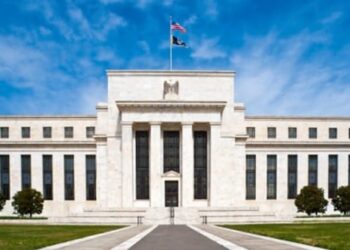In a media doorstop on Friday, Josh Frydenberg said comments included in the budget papers around Australia’s international borders reopening as late as mid-2022 were “not a policy decision” and had formed part of broader economic assumptions made in the document.
“This is a budget assumption we made around vaccines, around border closures, about containing the new virus cases, that Australians will get access to the vaccine by the end of the year,” Mr Frydenberg said.
“The first assumption is about the likelihood of the rollout being available to Australians by the end of the year. Another assumption is that the borders will gradually reopen from mid next year.
“Another assumption is that while there will be outbreaks, that they can be contained without an extended lockdown, like we saw in Victoria last year, all of those are assumptions that feed into the budget numbers and quite clearly, a critical determinant of our success as a country in maintaining economy recovery, will be our ability to suppress those cases when they appear.”
Mr Frydenberg suggested the nation’s economic prosperity in the next 12 months would largely rely on the availability of domestic travel and tourism, and would not be drawn on when exactly he expected the population to be fully vaccinated, although assumptions in the budget pointed to the end of 2021.
“It’s not specific about one or two doses, but as I said in the House [of Representatives], as the Health Minister said, the Prime Minister said, when it comes to the Pfizer vaccine, there’s only about a three week difference in having your first shot and your second shot,” he said.
“So you’re having a Pfizer shot now, you’re going to have your second shot in a few weeks. The AstraZeneca vaccine is a longer period between your first and your second shot. The key point is that the vaccine rollout is really gaining pace.
“But the key assumption, the key for the Budget is that we continue to be successful in suppressing the virus. This is primarily a health crisis, with a very severe economic impact.
“And if we continue to suppress the virus, including states ensuring that their response is proportionate with the outbreaks when they occur, then we can continue to see more people in work – that’s what’s really important.”
Mr Frydenberg said government debt assumptions in the budget had “come down by two thirds” compared to last year as a result of Australia’s speedy economic recovery from the pandemic, and that “the best available evidence” indicated net debt to GDP as a result of the economic crisis would peak at below $1 trillion.
“Net debt compared to the size of our economy comes down each and every year from what was forecast in last year’s budget just last October. We forecast that net debt to GDP, which is a key indicator of fiscal sustainability, would be around 43.8 per cent, we have now said it would be 40.9 per cent and that is just under $1 trillion,” he said.
“What it does indicate is the budget has strengthened since last October. The numbers are there for you to see, they are the best available evidence that we have about net debt peaking at 40.9 per cent.
“That is about half of the debt to GDP ratio you see in the US and the UK, about a third of what it is in Japan. People need to very clearly understand the size of the economic shock that Australia has endured.”







